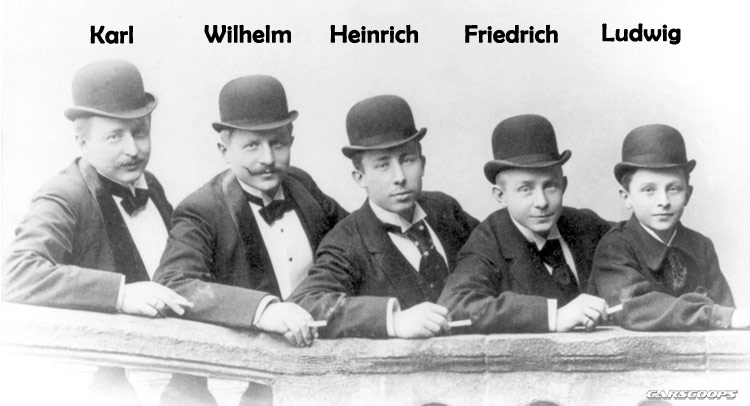On Thursday, Opel announced that its upcoming budget city car will be named Karl after one of the sons of founder Adam Opel.
See a trend here? Opel is using the names of its founding fathers for its latest models, a trend that started with the more luxurious Adam sub-compact. Adam Opel had five sons named Carl (or Karl), Wilhelm, Heinrich, Friedrich and Ludwig.
Now, that’s risky business for a German manufacturing company that was not only active during the Third Reich, but was actually supplying war equipment to Hitler’s armed forces – mind you, at a time it was owned by none other than…General Motors which obtained a majority stake in the German automaker in 1929 before assuming full control in 1931.
One of Adam’s sons, Wilhelm Opel, who became known as Wilhelm von Opel after he was granted nobility in 1917, is credited for introducing the assembly line to the German automobile industry, but somehow, we don’t think his name will be used for any future Opel model.
You see, Wilhelm joined the Nazi party in 1933 and was a supporting member of the regime.
Ashby Turner wrote in his book “General Motors and the Nazis: The Struggle for Control of Opel, Europe’s Biggest Carmaker” that covered the American firm’s dealings with the Third Reich:
“Wilhelm von Opel, the chairman of the firm’s board, joined the Nazi Party quickly in 1933 and served as a patron of the National Socialist Motor Vehicle Corps. In 1934 the corporation’s board consisted of four Americans and four Germans. Nazi functionaries were installed as corporate directors, board members, and chief of the security force. Additionally, cars were given as gifts to Nazi officials and advertising in National Socialist periodicals was intensified.”
In another book covering the period and titled “Ford, General Motors, and the Nazis: Marxist Myths About Production, Patriotism, and Philosophies” author Scott Nehmer writes:
“By 1947, German leaders at Opel were subjected to scrutiny from the Allied occupation forces in the form of trials. Wilhelm von Opel was labeled a ‘Mitlaufer’, or Nazi fellow traveler and paid a fine as part of his sentence in January. Von Opel was a leader of the German economy and his joining the Nazi Party strengthened the Nazis in 1933. However, the court recognized that he did not understand the magnitude of what he had done. Von Opel was described as being largely disinterested in politics and joining the party for the good of his company”





